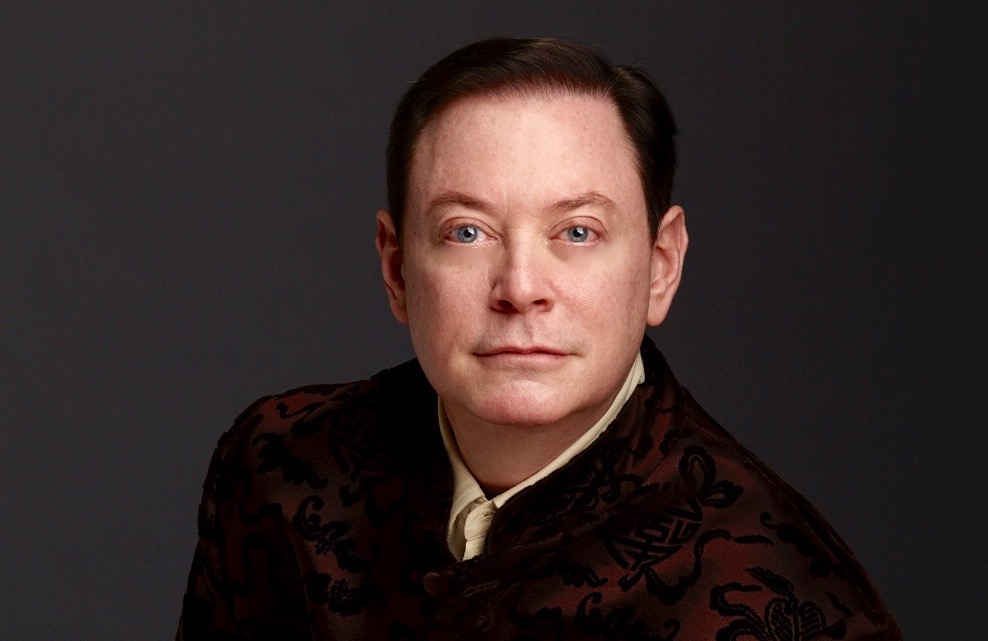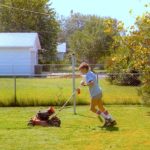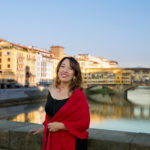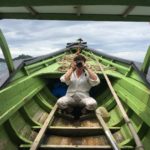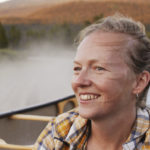Andrew Solomon’s books have won over fifty awards, including the National Book Award, the National Book Critics Circle Award, and the Wellcome Prize. His most recent book, from 2016, is Far and Away: How Travel Can Change the World, which was one of the New York Times‘ best books of the year. His previous books include Far From the Tree: Parents, Children, and the Search for Identity, The Noonday Demon: An Atlas of Depression, the novel A Stone Boat, and The Irony Tower: Soviet Artists in a Time of Glasnost in 1991. His TED talks have garnered more than 15 million views. Solomon is a Professor of Clinical Psychology at Columbia University Medical Center, and President of PEN American Center. He lives with his husband, John Habich Solomon, and son in New York and London, and is a dual national.
How did you get started traveling?
My mother adored travel and took us on many trips when I was growing up. Before we went, we always had to prepare by reading and learning about the place. That set the template for my later exploits as a traveler and travel writer. I loved travel from childhood.
How did you get started writing?
Likewise from childhood: family friends recount how I said at age three that I wanted to be a writer, and I’ve never wanted to be anything else.
What do you consider your first “break” as a writer?
My first job was at a glossy magazine, and in 1988, when I was 24 years old, I persuaded them to send me to Moscow for Sotheby’s sale of contemporary Soviet art. I said I’d be writing about how over-hyped the art was, but I met the artists, understood their context, and realized they were brilliant; they’d only made work that looked banal to avoid the unwelcome attentions of the KGB. It was a very different article from the one I’d been assigned, and I ended up writing my first book about the artists and how their lives changed during glasnost.
As a traveler and fact/story gatherer, what is your biggest challenge on the road?
I hate making cold calls to people I don’t know. I can engage with almost anyone, but I find that process especially challenging, and I get into paroxysms of anxiety in contacting total strangers and asking them to help me as I venture into fresh territory. Once I get past the first call, though, we’re fine.
What is your biggest challenge in the research and writing process?
Finding the structuring questions to ask people and the structure they imply for what I am writing. The anecdotes and facts are easy; the narrative arc always requires focused work.
What is your biggest challenge from a business standpoint?
Persuading editors to pay the cost of getting to very remote places.
Have you ever done other work to make ends meet?
I do a great deal of other work as a writer, and I also give lectures and do some teaching.
What travel authors or books might you recommend and/or have influenced you?
My favorite is Rose Macauley’s The Towers of Trebizond. It’s a novel but it’s really travel writing, and the section about the phrasebook and the misunderstanding at the hotel is one of the funniest things ever written.
What advice and/or warnings would you give to someone who is considering going into travel writing?
I’d suggest that going to established luxury locations is very pleasant, but usually brief; to write about a spa hotel in Positano, you need about 48 hours. If you go to places that are farflung and remote, you have to stay a month to know anything. Be careful of whatever is easy; if it’s really easy, it’s probably not worth writing about.
What is the biggest reward of life as a travel writer?
Seeing and participating in a large and remarkable world, and understanding that you cannot be provincial in your outlook once you’ve left the provinces. I believe that travel is a moral imperative for those who can afford it; without it, we fail to construct a world of initimacies.

